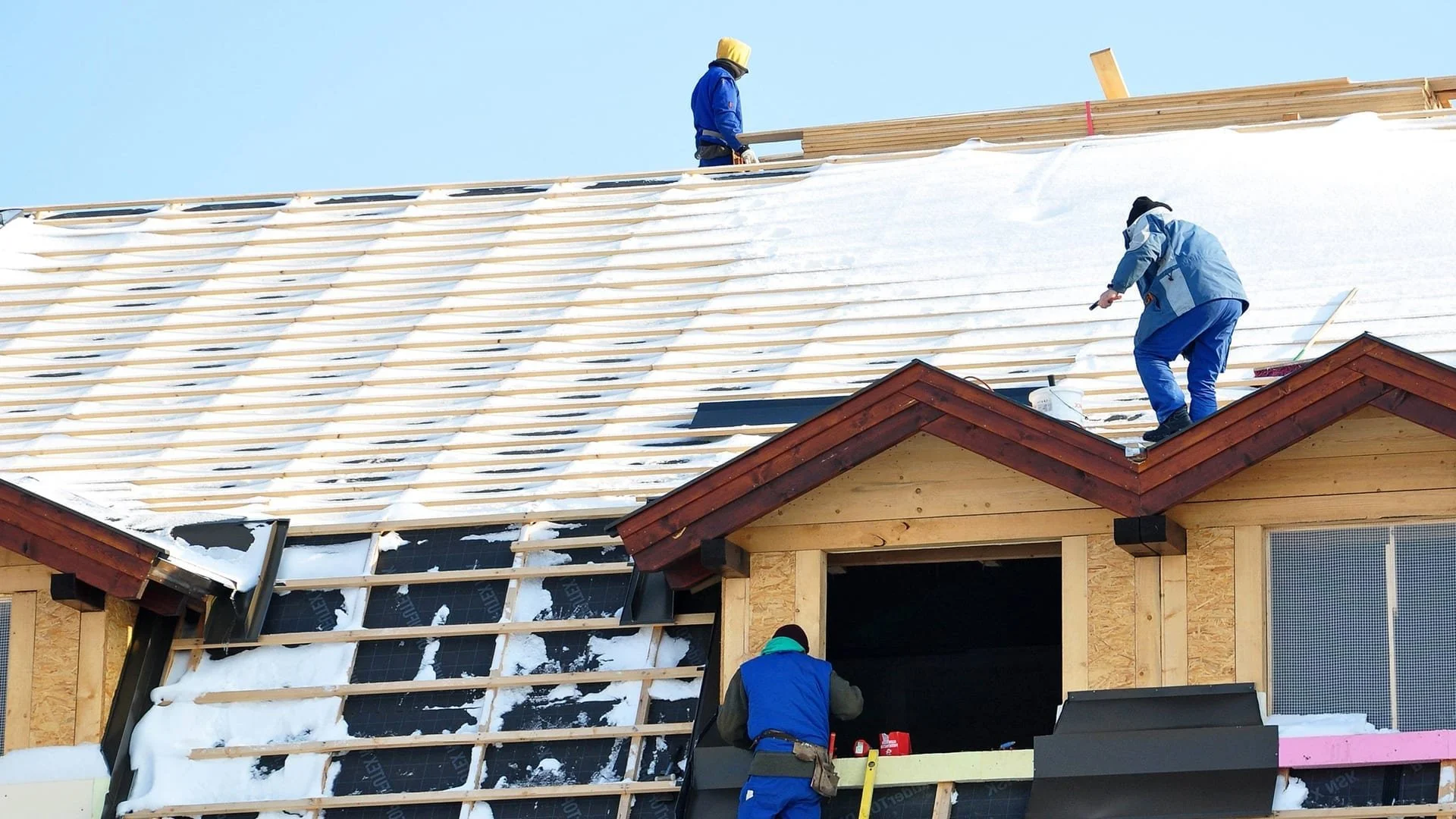Should I Install My Roof in the Winter?
When you think of home renovations, winter might not be the first season that comes to mind. However, a new roof can be a necessary investment that sometimes can’t wait for warmer weather. If you're contemplating whether to roof your home during the chilly months, let's unpack the pros and cons, along with a few key considerations.
The Pros of Winter Roofing
1. Availability of Contractor: Winter often sees a slowdown in roofing jobs, meaning contractors may have more availability. This could lead to quicker scheduling and potentially even better rates as you may be able to negotiate due to the lower demand.
2. Less Weather-Dependent Delays: While winter weather can be challenging, many roofing materials are designed to be installed in cooler temperatures. In some cases, certain projects might experience fewer delays compared to the unpredictable rains of spring or summer storms. You might be surprised to learn production crews actually prefer working in colder days. When you have 100-degree temperatures outside, you can't escape it, but you can always put an extra layer on in the winter. Many workers end up in a long-sleeve shirt, or a thin sweater, by the end of a work day from the heat their bodies created in the extra layers. Air compressors are less likely to malfunction in colder climates, as well.
3. Immediate Resolution of Issues: If you’re facing leaks or significant wear and tear from winter weather, addressing the roof issue promptly can prevent further damage to your home’s interior. A timely replacement can save you from dealing with more extensive repairs down the line.
The Cons of Winter Roofing
1. Cold Weather Challenges: Extreme cold can make it difficult to work effectively. Materials may not adhere well in frigid temperatures or snow, which can lead to complications during installation. Be sure to consider the specific materials being used, as some are better suited to colder conditions than others. Ask your contractor if the shingle being selected is rated for cold weather install and if the warranty will be impacted by cold-weather installation.
2. Limited Daylight: Shorter days in winter mean less time for roofing crews to work. This can extend the timeline of your project if the weather becomes unpredictable or if the crew is limited by darkness.
3. Potential for Increased Costs: Depending on the region, winter roofing might come with added costs. If snowy or icy conditions arise, contractors may need to take extra safety precautions, which can affect pricing.
Considerations Before You Decide
- Material Choice: Research roofing materials that perform well in cold weather. Some options, like certain asphalt shingles, are designed for lower temperatures, but it’s crucial to confirm that your choices align with the season. In Indiana, modified polymer shingles are available in Class-3 and Class-4 by most manufacturers. Reputable manufacturers like Owens Corning, GAF, IKO, and Malarkey, all have a modified polymer asphalt shingle option.
- Local Climate: Understand the typical winter conditions in your area. If heavy snowfall and ice are common, it might be better to wait for a more favorable season. However, in Indiana, we have had mild winters the last few years, with only four days of snow in 2023. If the forecast has at least two days with no precipitation, your roof could be installed safely.
- Contractor Experience: Choose a roofing contractor who has experience with winter installations. Ask about their methods to ensure quality and safety despite the seasonal challenges.
Amore Roof Co takes home protection seriously and as a preferred contractor for national shingle manufacturers, understands the requirements better than most. We check weather forecasts regularly, we watch the skies, and are always prepared to cover a home with waterproof Tarp and/or Class-4 synthetic underlayment. With shorter daylight hours in the winter, some projects will be completed in stages of tear-off & install on one slope and then tear off & install the remaining slope the next day to ensure quality production each day and not racing daylight.
- Emergency Needs: If your roof is compromised and poses a risk, such as leaks or structural damage, winter might not be an option you can afford to delay. Prioritize your home’s integrity and safety.
Wrapping Up
Ultimately, whether to install a new roof in winter comes down to your specific circumstances and urgency. Weigh the pros and cons carefully, and don’t hesitate to consult with professionals who can guide you on the best path forward. Remember, your roof protects your home; making informed decisions now can pay off in the long run!
So, if you’re considering a winter roof replacement, do your homework, ask the right questions, and you’ll be well on your way to a safe and secure home, no matter the season.
————-
The ARC Difference
Amore Roof Co. is a local roofing company. Based in Carmel, our specialists are in Zionsville, Whitestown, Carmel, Westfield, Eagle Creek, Geist, Fishers, Lawrence, Mccordsville, Fortville, Noblesville, Brownsburg, Plainfield and Avon. We know the area and we know the storms because we were affected by them ourselves. Our clients are family and we know them each by name. When you get a roof installed by Amore Roof Co., you are getting a promise: Peace of mind for the next 10 years that no issues will arise on your roof, or that if one does come up, our guarantee that it will be.
Our team is experienced in roof replacements of all materials, from: asphalt shingle roofing, metal roofing, premium designer shingles, cedar wood shake, ceramic tile, flat roofing – EPDM, TPO, Mod-Bit and we guarantee our work with a 10-year workmanship warranty. Our crews have been climbing roofs for years, taking all appropriate safety measures and delivering the highest quality roofs in the most affluent communities of the greater Indianapolis area. We are licensed, insured, bonded and we live our mission statement: We are committed to ensuring you LOVE YOUR HOME! www.AmoreRoofCo.com



